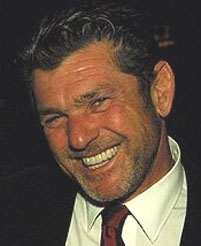 Once again, James Surowiecki is writing things I already knew but hadn't got around to saying. This week, in "Feature Presentation," he argues that we consumers habitually choose electronic devices that have many more features than we want or use, and that, after the blush of first contact, we grow bored with them. Our addling by gizmo he calls "feature creep," and he describes it this way:
Once again, James Surowiecki is writing things I already knew but hadn't got around to saying. This week, in "Feature Presentation," he argues that we consumers habitually choose electronic devices that have many more features than we want or use, and that, after the blush of first contact, we grow bored with them. Our addling by gizmo he calls "feature creep," and he describes it this way:"...fifty-button remote controls, digital cameras with hundreds of mysterious features and book-length manuals, and cars with dashboard systems worthy of the space shuttle. This spiral of complexity costs consumers time, but it also costs businesses money."
Side note, James: "Spiral," unless you're talking about footballs, confuses me. If your fortunes are spiralling, which way are they going? "Either way," says the OED:
spiral, v.
a. intr. To wind or move in a spiral manner; to form spiral curves.
b. To fly an aircraft in a spiral path. Also with down, downwards.
c. fig. To move rapidly in one direction (usu. upwards), in a manner considered to resemble a spiral; to increase or decrease in response to the same movement of another quantity or other quantities. Cf. sense 2d of the n. above.
 I've got a Sony-Ericsson that cost me something like 400 bucks when I bought it in Taipei, three years ago. The only reason I got it was that the PVC-skirted saleswoman in the FarEasTone was keen to sell me one of their house-brand phones (the telecommunications equivalent of Safeway-brand corn flakes), and I was keen to show her I wasn't gullible. So I bought a 400-dollar phone.
I've got a Sony-Ericsson that cost me something like 400 bucks when I bought it in Taipei, three years ago. The only reason I got it was that the PVC-skirted saleswoman in the FarEasTone was keen to sell me one of their house-brand phones (the telecommunications equivalent of Safeway-brand corn flakes), and I was keen to show her I wasn't gullible. So I bought a 400-dollar phone.Its features have come back to earth since, but at the time it was flash. I had Bluetooth, for sending anonymous messages to intriguing strangers (never happened); Internet at my thumbtips, for those formerly unproductive cab rides (never happened); and the ability to shoot videos. The latter was cool exactly three times: in Bangkok during Songkran, when I filmed some girls dancing on a loudspeaker; here, when I witnessed a "near plane crash" (YouTube commenters can be so cruel); and here, when comic-relief Taeho came to my ESL class with a fresh perm.
The picture is poor because the camera lens has been damaged in my pocket—three years' of rainwater, chewing-gum residue, key scratches, and coin thrashings. The phone now sits on my bedstand, uncharged and alone. I'm going through a Luddite phase.
Cell-phone designers, if you're listening: I'd like something indestructible, in brushed aluminum, with great reception. I'm tired of designed obsolescence and "#" buttons that stick. I don't need photographic capacity, video games, or DJ-mixing programs. Make it like a Zippo lighter—something that warms against my leg, something I can spin on a table.








